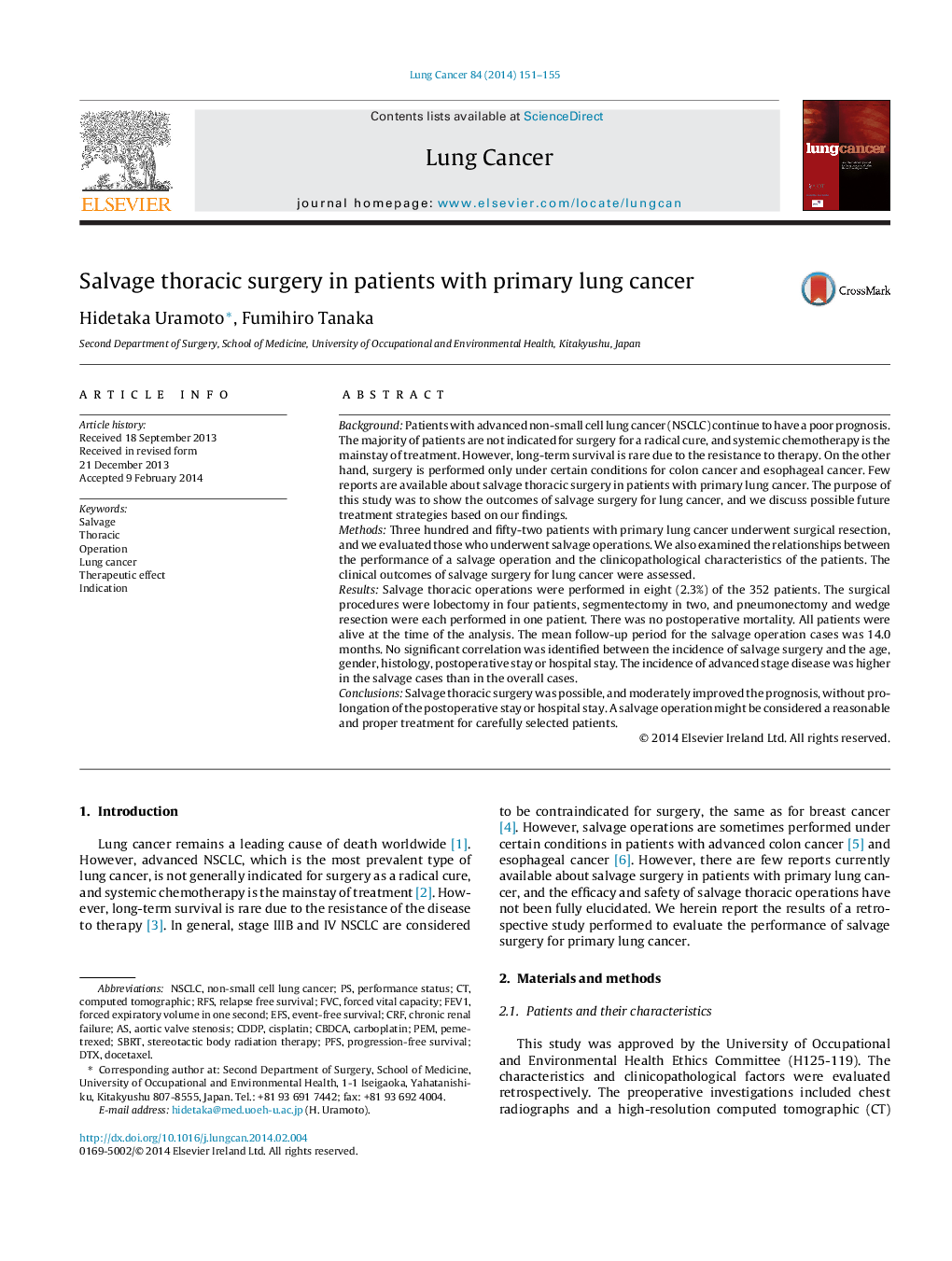| Article ID | Journal | Published Year | Pages | File Type |
|---|---|---|---|---|
| 2140859 | Lung Cancer | 2014 | 5 Pages |
BackgroundPatients with advanced non-small cell lung cancer (NSCLC) continue to have a poor prognosis. The majority of patients are not indicated for surgery for a radical cure, and systemic chemotherapy is the mainstay of treatment. However, long-term survival is rare due to the resistance to therapy. On the other hand, surgery is performed only under certain conditions for colon cancer and esophageal cancer. Few reports are available about salvage thoracic surgery in patients with primary lung cancer. The purpose of this study was to show the outcomes of salvage surgery for lung cancer, and we discuss possible future treatment strategies based on our findings.MethodsThree hundred and fifty-two patients with primary lung cancer underwent surgical resection, and we evaluated those who underwent salvage operations. We also examined the relationships between the performance of a salvage operation and the clinicopathological characteristics of the patients. The clinical outcomes of salvage surgery for lung cancer were assessed.ResultsSalvage thoracic operations were performed in eight (2.3%) of the 352 patients. The surgical procedures were lobectomy in four patients, segmentectomy in two, and pneumonectomy and wedge resection were each performed in one patient. There was no postoperative mortality. All patients were alive at the time of the analysis. The mean follow-up period for the salvage operation cases was 14.0 months. No significant correlation was identified between the incidence of salvage surgery and the age, gender, histology, postoperative stay or hospital stay. The incidence of advanced stage disease was higher in the salvage cases than in the overall cases.ConclusionsSalvage thoracic surgery was possible, and moderately improved the prognosis, without prolongation of the postoperative stay or hospital stay. A salvage operation might be considered a reasonable and proper treatment for carefully selected patients.
